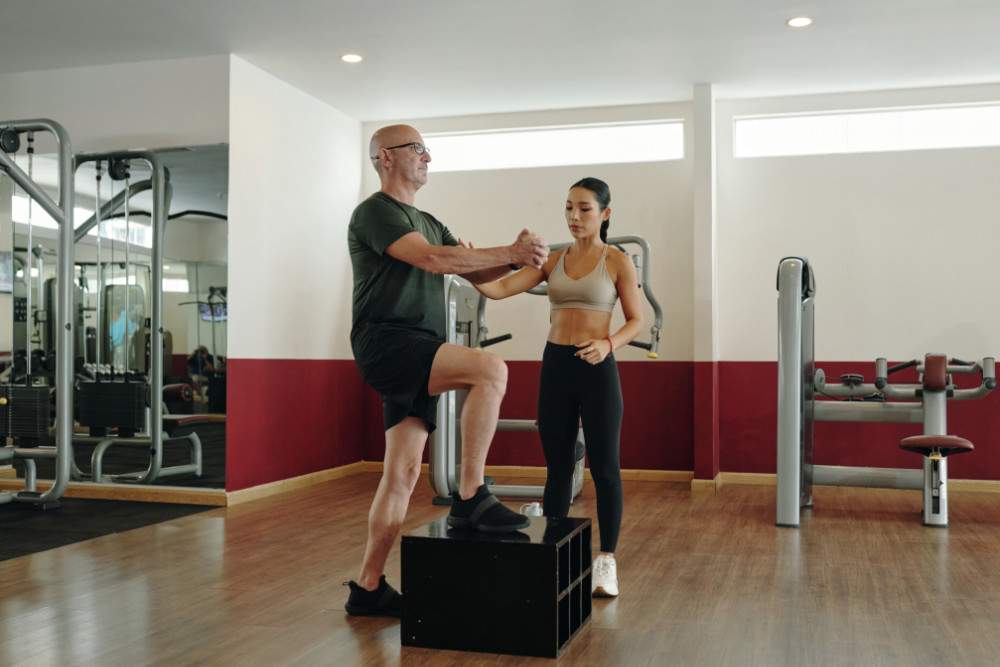You do not need to register personally to access NDIS personal trainer services in Melbourne; if personal training or exercise physiology is approved in your plan under Core or Capacity Building, you can use it with eligible providers in suburbs like Elwood, St Kilda, and Port Phillip.
What the NDIS pays for
The NDIS funds personal training and exercise physiology when supports are “reasonable and necessary” for disability-related goals, helping you build independence, physical health, and functional capacity.
Covered fitness supports
- One-on-one personal training sessions
- Exercise physiology assessments and reviews
- Strength and conditioning programs
- Mobility, balance, and falls-prevention training
- Weight management support through exercise
- Injury rehabilitation programming
- Some group fitness where linked to goals
Personal training commonly gets funded via Capacity Building under “Improved Health and Wellbeing,” while some supports can be delivered from Core for daily activities where appropriate.
9 Steps To Shed 5-10kg In 6 Weeks
Includes an exercise plan, nutrition plan, and 20+ tips and tricks.
Download FreeCosts and pricing
In Melbourne, NDIS personal training is typically $50–$90 for 30 minutes one-on-one, with some weekly membership models at $80–$120 for peak-hour access depending on the provider and inclusions.
What affects price
- Provider registration status (registered vs non-registered)
- Location (gym, home, outdoors) and travel
- Session length (30 vs 60 minutes)
- Individual vs small group delivery
Registered providers follow NDIS pricing limits set annually; confirm current caps with your plan manager or support coordinator if needed.
Do trainers need NDIS registration?
If you are self-managed or plan-managed, you can choose qualified trainers who are not NDIS-registered; they simply invoice according to your plan’s rules.
If you are NDIA-managed, you must use registered NDIS providers who meet Quality and Safeguards Commission standards and can claim directly.
Qualifications to look for
Minimum qualifications include Certificate III and IV in Fitness, plus current First Aid and CPR; strong experience with your disability type improves safety and results.
Preferred credentials
- NDIS familiarity and correct invoicing/service agreements
- Experience with autism, CP, ABI, or your specific condition
- Exercise Physiology degree for complex clinical needs
- Membership with Fitness Australia or Physical Activity Australia
Trainers with allied health background (exercise physiology, physiotherapy, OT) can coordinate reports for NDIS reviews and collaborate with your medical team.
Gym memberships and NDIS
Standard gym memberships are typically not funded as they’re considered everyday costs; however, one-on-one training at a gym and exercise physiology appointments are eligible when linked to plan goals.
Specialised disability equipment can be funded when it is directly related to your needs and necessary to achieve outcomes in your plan.
Finding trainers in Elwood
Search for trainers who explicitly support NDIS participants, ask your coordinator for referrals, and use the NDIS provider finder; confirm they serve Elwood, St Kilda, and Port Melbourne.
Shortlist questions
- Have you trained clients with my disability?
- Do you offer home, gym, pool, or outdoor sessions?
- How do you process NDIS payments and reports?
- Can you coordinate with my physio or OT?
Many Elwood providers offer mobile services and can meet at home, local parks, or accessible facilities to reduce travel barriers.
Personal trainer vs exercise physiologist
Exercise physiologists hold university degrees and are often approved more readily for NDIS due to clinical expertise, assessments, and report writing for reviews.
Personal trainers focus on strength, fitness, motivation, and accountability; both can be funded, with EP sessions typically costing more than PT sessions.
How many sessions are funded?
There is no fixed session limit; your plan budget determines access, with many participants scheduling one to three sessions per week across PT and EP services.
Indicative annual allocations
- $2,000–$5,000 for Exercise Physiology
- $3,000–$8,000 for Personal Training
- $1,500–$3,000 for group fitness programs
For increased funding, bring progress evidence from your trainer at plan review showing how sessions improve function aligned to your goals.
If PT isn’t in your plan
Request an unscheduled review with evidence from your GP or allied health team, wait for the next annual review, or explore flexible use of Core Supports where appropriate.
Clearly connect PT to disability-related outcomes such as mobility, transfers, falls reduction, weight management for health, or community access.
Frequently asked questions
Do I need a doctor’s referral?
No referral is required to start, but supportive letters from your GP or specialist help justify and maintain funding within your plan.
Can I change trainers if I’m not happy?
Yes—choice and control allow switching anytime; if NDIA-managed, choose another registered provider and update your service agreement.
What if my trainer isn’t NDIS-registered?
Self-managed and plan-managed participants can use non-registered trainers who issue compliant invoices; NDIA-managed participants must use registered providers.
Can the NDIS fund personal training for weight loss?
Yes, when weight loss is linked to disability-related needs and functional outcomes, such as mobility and health improvements documented in your goals.


